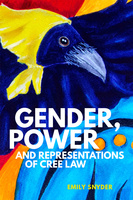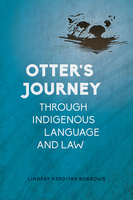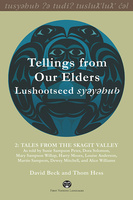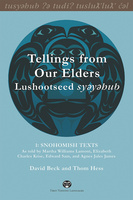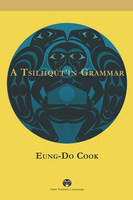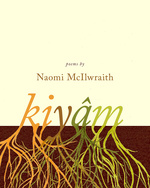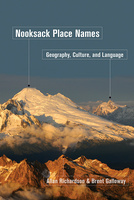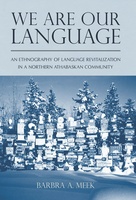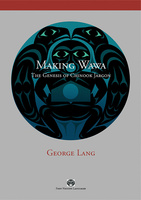Gender, Power, and Representations of Cree Law
This powerful book investigates the relationship between the oversimplification of gender in representations of Cree law and its effect on perceptions of Indigenous women as legal agents and citizens.
Otter’s Journey through Indigenous Language and Law
Told in contemporary Anishinaabe storytelling style, Otter’s Journey takes us across the globe to explore how the work in Indigenous language revitalization can inform the emerging field of Indigenous legal revitalization.
Tellings From Our Elders: Lushootseed syeyehub
The Complete Two-Volume Set
Twenty-seven traditional Lushootseed stories are presented in this two-volume set, complete with English translations and interlinear grammatical analyses.
Tellings from Our Elders
Lushootseed syeyehub, Volume 2: Tales from the Skagit Valley
Nine traditional stories from the Skagit Valley, presented with line-by-line interlinear glosses, illuminate the grammatical and narrative richness of the Lushootseed language
Tellings from Our Elders: Lushootseed syeyehub
Volume 1: Snohomish Texts
This invaluable analysis of eighteen Lushootseed traditional stories includes interlinear grammatical analyses.
A Tsilhqút’ín Grammar
This book provides a comprehensive linguistic description of Tsilhqút’ín (Chilcotin), an Athabaskan language spoken in Interior British Columbia.
Nooksack Place Names
Geography, Culture, and Language
The first comprehensive study of Nooksack place names in Washington State and southern British Columbia, based on historical records and field trips with elders.
We Are Our Language
In presenting the case of Kaska, an endangered language in an Athapascan community in the Yukon, Barbra Meek asserts that language revitalization requires more than just linguistic rehabilitation; it demands a social transformation. The process must mend rips and tears in the social fabric of the language community that result from an enduring colonial history.
Making Wawa
The Genesis of Chinook Jargon
A two-edged sword of reconciliation and betrayal, Chinook Jargon (aka Wawa) arose at the interface of “Indian” and “White” societies in the Pacific Northwest. Wawa’s sources lie first in the language of the Chinookans who lived along the lower Columbia River ...

